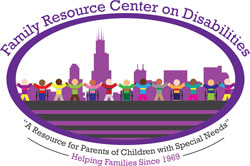
by frcdadmin | Jun 12, 2025 | Uncategorized
from the Midwest Asian Health Association LOOKING FOR A JOB? Midwest Asian Health Association’s (MAHA) Smart Match Employment Program is here to help individuals with disabilities find employment opportunities that match their skills and interests. MAHA offers several...

by frcdadmin | Jun 10, 2025 | Uncategorized
Summer break is here for many Illinois students! Have you checked out our 2025 summer camp list for youth of all ages with special healthcare needs? Located throughout Illinois and beyond, these camps offer opportunities for fun, making friends and developing new...

by frcdadmin | May 23, 2025 | News, Uncategorized
The 20th Annual Illinois Statewide Transition Conference, taking place on October 30–31, 2025, at the Crowne Plaza Hotel and Convention Center in Springfield, Illinois is open for registration. This milestone event brings together youth with disabilities, families,...

by frcdadmin | May 23, 2025 | News, Uncategorized
Popcorn With Purpose: Expanded Double Good Days Returns June 8 To Bring Joy To Chicagoland Kids With Special Needs Designed to bring joy to kids with special needs and their families and caregivers, the third annual Double Good Days will take place June 8 at the Kohl...

by frcdadmin | Apr 29, 2025 | Uncategorized
Clientes y proveedores del Programa de Servicios a Domicilio (HSP) Reunión virtual de la alcaldía para HSP Mayo 28, 2025 1:30 PM – 2:30 PM Mayo 29, 2025 10:30 AM – 11:30 AM Mayo 30, 2025 1:30 PM – 2:30 PM Hay nuevos servicios disponibles. Infórmese sobre los planes...






